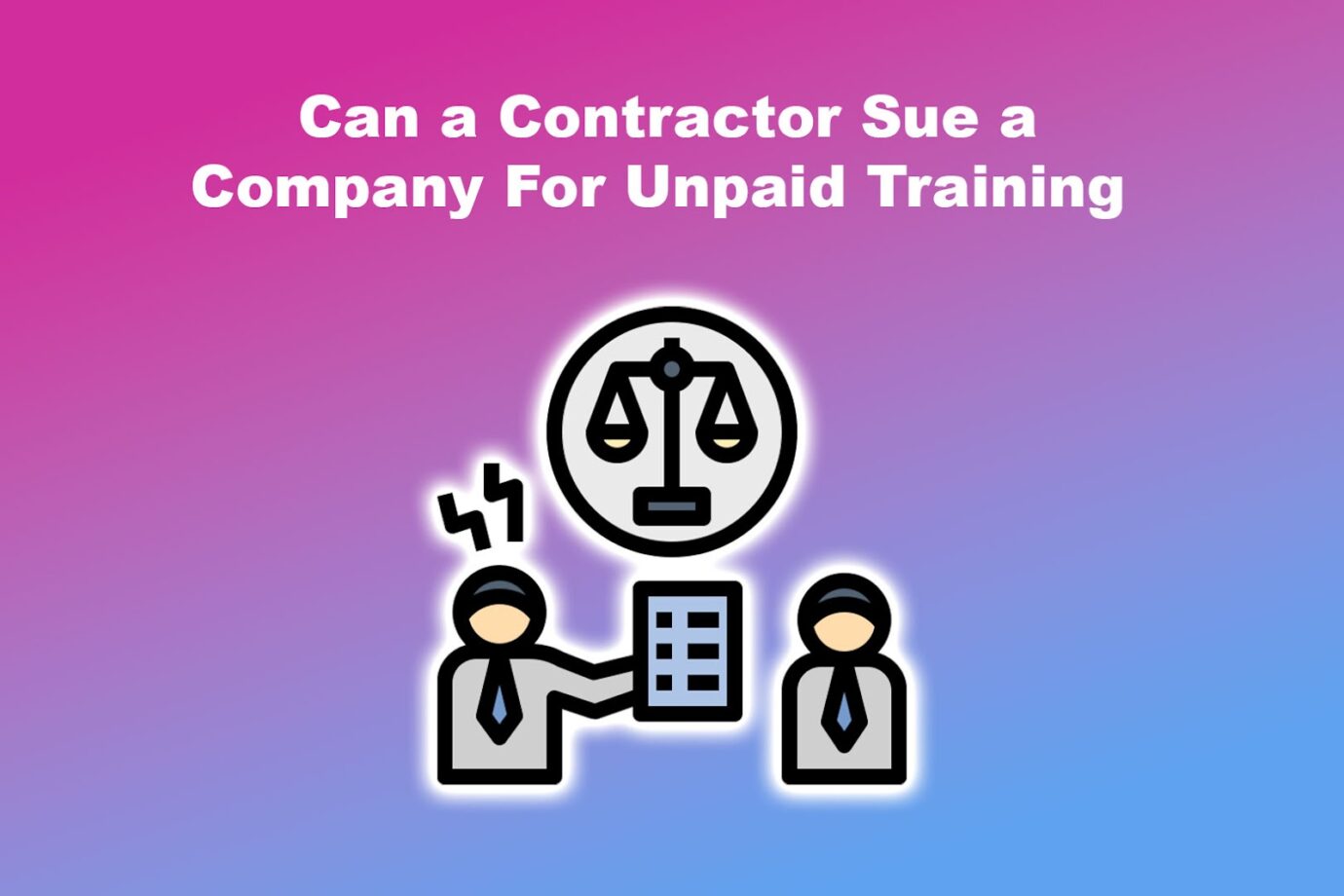Experiencing greater independence is one of the advantages of being an independent contractor. But despite the benefits, independent contractors also experience drawbacks. One disadvantage is that they have to shoulder their professional training expenses.

Some companies that hire external workforce require their contractors to attend mandatory training. But do independent contractors get paid for training? Keep reading to find it out!
What Is an Independent Contractor?
An independent contractor is an individual who provides goods or services to a business under a contractual agreement. They are not company employees but a workforce hired to perform specific tasks. Independent contractors are often employed for a defined period. They pay their own business expenses, taxes, and insurance.
People who work as a contractor usually fall under industries like IT, freelance writing, consulting, and virtual assistance. They offer professional skills and expertise to fulfill the tasks given by their clients.
Unlike in-house employees, independent contractors are not permanent members of the company they work for. Additionally, they do not receive the same legal and financial benefits as employees.
Learn about How the International Revenue Service Defines a Contractor.
Should an Organization Provide Training to an Independent Contractor?
Organizations are not required by law to provide training to independent contractors, but the decision to do so depends on them. The company should train the contractors if their tasks require familiarization with the organization’s processes. Training is also ideal if the independent contractor will handle sensitive information or trade secrets.
Independent contractors usually provide and pay for their training to certify their expertise, so organizations no longer have to train them. For this reason, businesses no longer have to pay for their skill enhancement.
On the contrary, organizations may require in-house employees to attend training as long as they will pay for it.
International Revenue Service has a Comparison of Employees and Independent Contractors.
Do Independent Contractors Get Paid for Training?
Whether or not an independent contractor gets paid for training depends on their contract with their client. When compensated training is included in the company-contractor contract, the company usually factors its cost into the amount the contractor receives upon project completion.
Moreover, companies may opt not to compensate an independent contractor’s training. This happens when the training is seen as a way to enhance the contractor’s skills and qualifications instead of something that benefits the company.

If you are an independent contractor, communicating with your hiring organization about the details of your contract is crucial. This way, you will find out if you are adequately compensated for the training and tasks you will receive.
Fortunately, most businesses that hire independent contractors know how to train, assign tasks, and compensate their external workforce.
Related Post: Maternity Leave for Remote Employees
How Can an Independent Contractor Get Paid For Training?
An independent contractor can get paid for training by including the training compensation in their contract with the company that hired them. As a contractor, you must clearly outline the training schedule, duration, and rate and how you will be paid.
When outlining the contract, you must document all training-related terms, such as the compensation details. This way, you can prevent disputes or misunderstandings with your hiring organization.
Understandably, having a contractor pay for your training can blur the lines between working as an independent contractor and an in-house employee. You can add your training fee to the overall project compensation if this concerns you.
Your hiring organization should clearly understand that the amount you are invoicing for is the total of the training and project costs.
However you want to include the training fee in your contract, remember that negotiation is the key. You and your hiring organization must also arrive at a mutually beneficial agreement regarding the compensation and the benefit your skills will bring to the company.
Can an Independent Contractor Sue a Company for Unpaid Training?
Yes, an independent contractor can sue a company for unpaid training if the training fee is explicitly stated in the contract. But if no training fees are mentioned in the company-contractor contract, the latter cannot file a lawsuit. Note the Fair Labor Standards Act (FLSA) does not apply to independent contractors.

A verbal agreement may also come into play when suing a company for unpaid training. For instance, the contract does not outline training compensation, but the hiring organization mentioned it. In this case, the independent contractor may have legal grounds to file a claim against their hiring organization.
Apart from training, the FLSA does not mandate employers to pay independent contractors minimum wage or overtime pay. So, the amount a contractor will receive for the tasks they perform for a business depends on the contract they have.
What Are the Benefits of Training an Independent Contractor?
While training an independent contractor is not mandatory for companies, this practice can benefit your business.
These are the benefits of providing training to an independent contractor:
1. Compliance With Legal Requirements
When industries like healthcare hire an independent contractor, they must ensure that the contractor is familiar with provisions that protect patient information, such as HIPAA. However, you can also provide more training and orientation regarding Protected Health Information.
If your third-party contractor violates the law, you can protect your company by proving that the contractor is fully aware of the policy.
2. Faster Project Completion
If the project assigned to an independent contractor uses a company-specific process, it will take some time for the contractor to familiarize themselves with it. This will also increase the amount of time they need to spend completing the tasks assigned to them.
Letting a contractor work on a job without helping them familiarize themselves with your company’s processes may also lead to confusion and mistakes.
By providing training to your external workforce, you can help them finish their tasks on time with minimal mistakes or revisions needed.
3. Improves Contractor Performance
Like faster project completion, helping contractors familiarize themselves with your company processes may help boost their performance. Contractors who have an overview of their company become effective workers.
However, you can’t make reading corporate materials or training mandatory unless you pay for the time they spend on it. Remember that independent contractors are not official members of your company, so they are not required to do anything other than the project assigned to them.
Find out the tasks you can delegate to your independent contractor after training them.
What Is the Contract Between a Company and an Independent Contractor?
The contract between a company and an Independent contractor is an “Independent Contractor Agreement.” This is a written contract outlining the arrangement between the company and the contractor. Three of the most essential things outlined in the contract are the job description, confidentiality, and payment terms.
An Independent Contractor Agreement may also outline dispute resolution clauses and contractor benefits, if there are any. Contractors usually don’t get work benefits, but their hiring organizations may opt to offer them benefits like bonuses.
Paying Independent Contractors For Training
Whether an independent contractor gets paid for training depends on their agreement with the company they’ll work for. Independent contractors are experts in their niches, usually providing the necessary training.
However, if you assign confidential tasks to your external workforce, training them about your company’s work processes may be necessary. You must discuss the training’s payment terms with your contractors in this case.